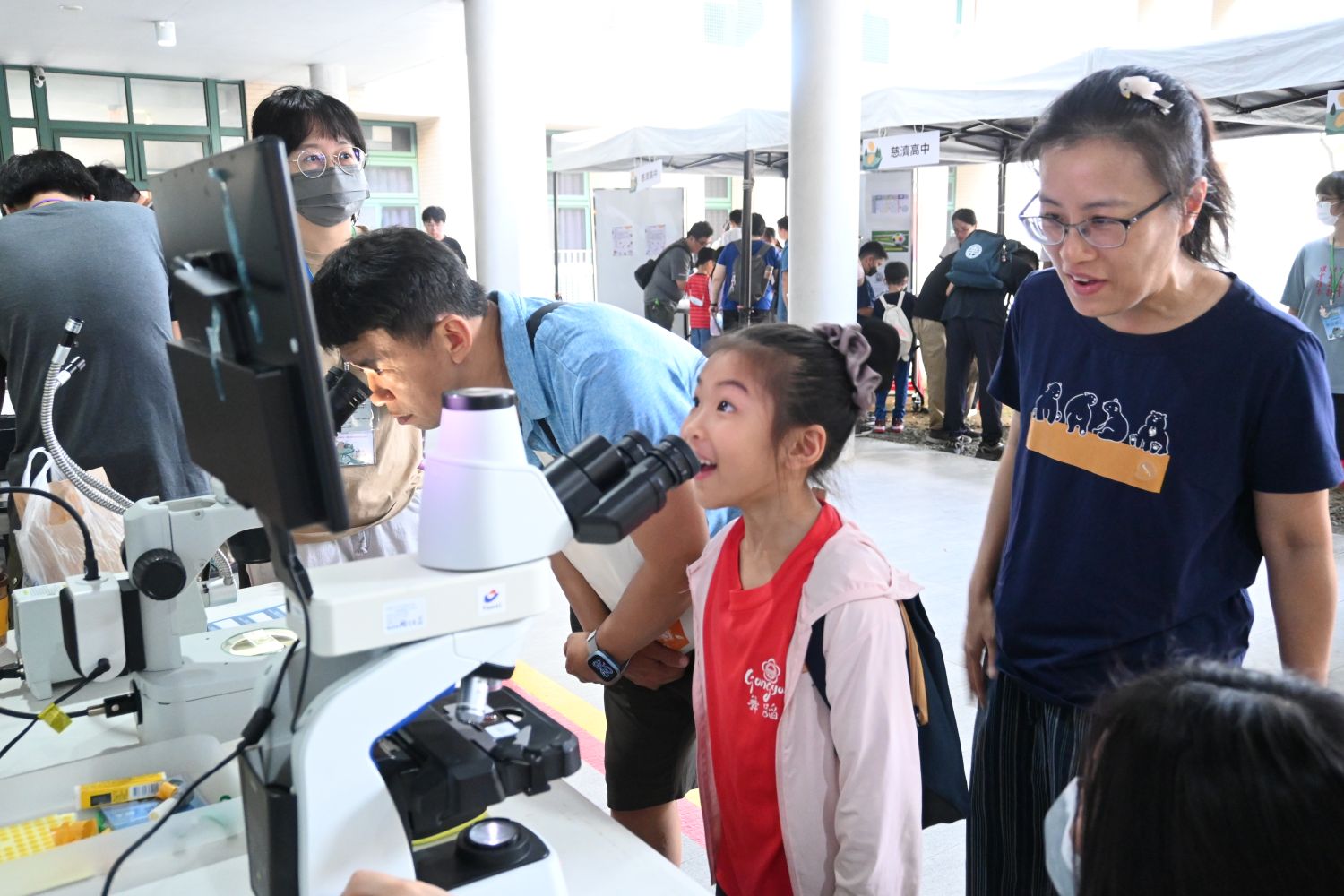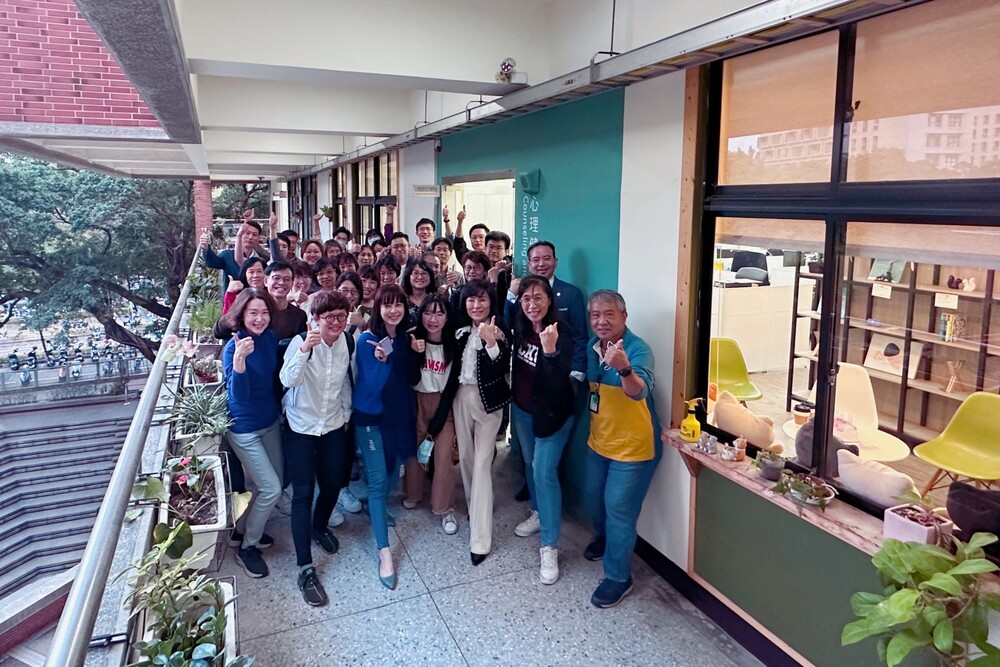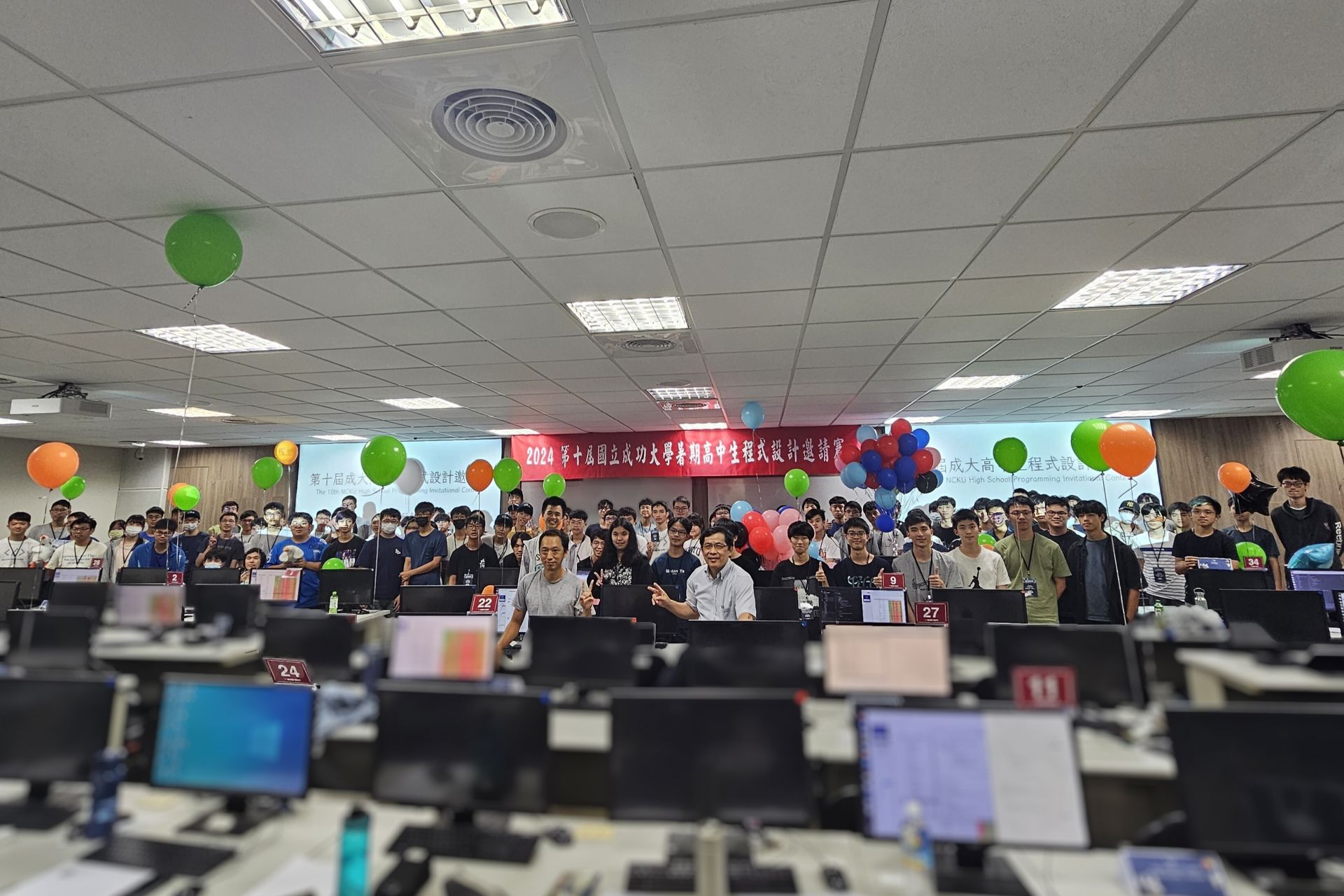SDG4
East Asian Scholar Professor Masayuki Sato Leads Exploration into the Millennium-Old Academic Puzzle of The Doctrine of the Mean
Established in February 2025, the Center for Sinology Research and Development at National Cheng Kung University (NCKU), in collaboration with the Tainan Highest Good Education Foundation, has launched a series of Sinology lectures. The first session of the “NCKU Sinology Lecture” was held on September 25 at NCKU, featuring Professor Masayuki Sato from the Department of Philosophy at National Taiwan University (NTU), who delivered a lecture titled “An Analysis of the Possible Period and Purpose of Composition of the Doctrine of the Mean (中庸) through Its Lexical and Discourse Structures.” Professor Sato introduced a refreshing perspective to this long-debated academic issue.
Before the lecture began, Professor Yuh-Neu Chen, Vice President of NCKU, Professor of History, and Director of the Center for Sinology Research and Development, gave opening remarks. She elaborated on the lecture series’ core vision of “Local Roots, Global Dialogue,” emphasizing that the platform aims to connect classical studies with contemporary contexts, showcase the theoretical depth of Sinological research, and promote “cultural inheritance and interpretation.” Professor Chen also noted that the Center seeks to invite distinguished scholars from Taiwan and abroad to share their forward-looking insights, enriching the humanistic foundation of NCKU.
Lexical and Contextual Reconstruction: The Doctrine of the Mean (中庸) Possibly Composed in the Qin-Han Period
Since Ouyang Xiu’s skepticism during the Song dynasty, the dating of The Doctrine of the Mean (中庸) has remained a subject of scholarly debate. While some attribute the work to Zisi, others argue for a later compilation in the Qin-Han period. Professor Sato challenged the traditional “authored-by-Zisi” theory through textual evidence. By carefully analyzing compound words and political discourse in The Doctrine of the Mean (中庸), and comparing its linguistic affinities with The Lüshi Chunqiu (呂氏春秋) and Huainanzi (淮南子), he convincingly argued that the final form of the existing text should date to the Han dynasty.
Professor Sato noted that The Doctrine of the Mean (中庸) is not a work of unified thought but a compilation of multiple textual strata. However, its final author or editor successfully integrated diverse elements through a coherent philosophical framework — using the “Way (道)” as the overarching principle and “Sincerity (誠)” as the ultimate ideal — thereby constructing the text’s distinctive ideological structure.
The Ideal Ruler: The Historical Significance of the Doctrine of the Mean’s (中庸) “Gentleman”(君子論)
In the political-philosophical dimension, Professor Sato explored the text’s intended audience and function. He classified The Doctrine of the Mean’s (中庸) ideal figures into three types — the sage (聖人), the son of heaven (天子), and the gentleman (君子) — emphasizing that the text primarily targeted the shi class and noble elites of the Qin-Han period. According to Sato, The Doctrine of the Mean (中庸) envisions a unified empire—the Han dynasty—and its concept of the “gentleman”(君子論) serves as a moral and political code of conduct for mid-level ruling elites operating within a multilayered imperial system. Rather than proposing structural political reform, the text offered an ethical framework for maintaining social order and effective governance, thereby reaffirming its distinctive position in the political thought of the Four Books (四書).
Lively Academic Exchange: Faculty and Scholars Engage in Deep Discussion
The lecture was attended by numerous scholars, including Professor Wen-Ching Liou (Department of Chinese, National Sun Yat-sen University), Professors Wei-Hung Yen, Houng-Hsueh Chen, Zhuang-Cheng Pang, and Kang-Lin Tan (Department of Chinese, NCKU), as well as Professor Wei-Li Hsu (Department of History, NCKU). During the Q&A session, the discussion was animated. Professors Liou, Tan, and Pang raised incisive questions concerning the use of compound words as chronological evidence, engaging in an in-depth dialogue with Professor Sato. The exchange underscored both the scholarly significance of the topic and the intellectual rigor and openness of the debate, enriching the academic depth of the event.
In her concluding remarks, Professor Su-Chuan Lin, who served as moderator, emphasized that while the lecture had ended, Professor Sato’s insights opened up new perspectives for the study of The Doctrine of the Mean (中庸) and early Confucian thought in the Qin-Han period. She noted that the lecture’s intellectual impact would continue to inspire further discussion in the academic community, affirming the NCKU Sinology Lecture’s role as a pioneering academic platform.
The lecture was organized by the Center for Sinology Research and Development, NCKU, with generous support from the Tainan Highest Good Education Foundation. As a foundation deeply rooted in local culture and committed to humanistic education, the Highest Good Education Foundation has long supported academic development, helping to transform the fruits of scholarly research into knowledge that enriches society and everyday life. Its steadfast commitment demonstrates the foundation’s vital role in promoting classical studies, education, and the cultivation of new generations of scholars. Faculty members, students, and the academic community are warmly invited to continue supporting and participating in the Center’s upcoming events.
Before the lecture began, Professor Yuh-Neu Chen, Vice President of NCKU, Professor of History, and Director of the Center for Sinology Research and Development, gave opening remarks. She elaborated on the lecture series’ core vision of “Local Roots, Global Dialogue,” emphasizing that the platform aims to connect classical studies with contemporary contexts, showcase the theoretical depth of Sinological research, and promote “cultural inheritance and interpretation.” Professor Chen also noted that the Center seeks to invite distinguished scholars from Taiwan and abroad to share their forward-looking insights, enriching the humanistic foundation of NCKU.
Lexical and Contextual Reconstruction: The Doctrine of the Mean (中庸) Possibly Composed in the Qin-Han Period
Since Ouyang Xiu’s skepticism during the Song dynasty, the dating of The Doctrine of the Mean (中庸) has remained a subject of scholarly debate. While some attribute the work to Zisi, others argue for a later compilation in the Qin-Han period. Professor Sato challenged the traditional “authored-by-Zisi” theory through textual evidence. By carefully analyzing compound words and political discourse in The Doctrine of the Mean (中庸), and comparing its linguistic affinities with The Lüshi Chunqiu (呂氏春秋) and Huainanzi (淮南子), he convincingly argued that the final form of the existing text should date to the Han dynasty.
Professor Sato noted that The Doctrine of the Mean (中庸) is not a work of unified thought but a compilation of multiple textual strata. However, its final author or editor successfully integrated diverse elements through a coherent philosophical framework — using the “Way (道)” as the overarching principle and “Sincerity (誠)” as the ultimate ideal — thereby constructing the text’s distinctive ideological structure.
The Ideal Ruler: The Historical Significance of the Doctrine of the Mean’s (中庸) “Gentleman”(君子論)
In the political-philosophical dimension, Professor Sato explored the text’s intended audience and function. He classified The Doctrine of the Mean’s (中庸) ideal figures into three types — the sage (聖人), the son of heaven (天子), and the gentleman (君子) — emphasizing that the text primarily targeted the shi class and noble elites of the Qin-Han period. According to Sato, The Doctrine of the Mean (中庸) envisions a unified empire—the Han dynasty—and its concept of the “gentleman”(君子論) serves as a moral and political code of conduct for mid-level ruling elites operating within a multilayered imperial system. Rather than proposing structural political reform, the text offered an ethical framework for maintaining social order and effective governance, thereby reaffirming its distinctive position in the political thought of the Four Books (四書).
Lively Academic Exchange: Faculty and Scholars Engage in Deep Discussion
The lecture was attended by numerous scholars, including Professor Wen-Ching Liou (Department of Chinese, National Sun Yat-sen University), Professors Wei-Hung Yen, Houng-Hsueh Chen, Zhuang-Cheng Pang, and Kang-Lin Tan (Department of Chinese, NCKU), as well as Professor Wei-Li Hsu (Department of History, NCKU). During the Q&A session, the discussion was animated. Professors Liou, Tan, and Pang raised incisive questions concerning the use of compound words as chronological evidence, engaging in an in-depth dialogue with Professor Sato. The exchange underscored both the scholarly significance of the topic and the intellectual rigor and openness of the debate, enriching the academic depth of the event.
In her concluding remarks, Professor Su-Chuan Lin, who served as moderator, emphasized that while the lecture had ended, Professor Sato’s insights opened up new perspectives for the study of The Doctrine of the Mean (中庸) and early Confucian thought in the Qin-Han period. She noted that the lecture’s intellectual impact would continue to inspire further discussion in the academic community, affirming the NCKU Sinology Lecture’s role as a pioneering academic platform.
The lecture was organized by the Center for Sinology Research and Development, NCKU, with generous support from the Tainan Highest Good Education Foundation. As a foundation deeply rooted in local culture and committed to humanistic education, the Highest Good Education Foundation has long supported academic development, helping to transform the fruits of scholarly research into knowledge that enriches society and everyday life. Its steadfast commitment demonstrates the foundation’s vital role in promoting classical studies, education, and the cultivation of new generations of scholars. Faculty members, students, and the academic community are warmly invited to continue supporting and participating in the Center’s upcoming events.

East Asian Scholar Professor Masayuki Sato Leads Exploration into the Millennium-Old Academic Puzzle of The Doctrine of the Mean (中庸)

Vice President Yuh-Neu Chen delivers opening remarks for the inaugural NCKU Sinology Lecture

Professor Su-Chuan Lin of the NCKU Department of Chinese Language and Literature moderates the lecture, highlighting Professor Masayuki Sato’s academic research

Keynote speaker Professor Masayuki Sato explains the period of composition and philosophical significance of The Doctrine of the Mean (中庸)























